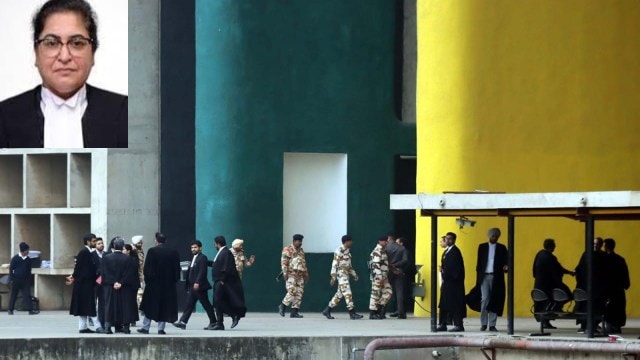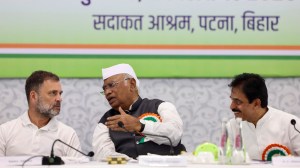After 3 decades of litigation, Haryana man gets back land parcel from Faridabad civic body following HC ruling
Justice Alka Sarin dismissed the Faridabad Municipal Corporation’s appeal and ruled in favour of the original claimant’s successor, echoing a 1993 judgment in a similar case which was later upheld by the Supreme Court.
 The judgment, delivered on Monday by Justice Alka Sarin, pertains to the litigation over a parcel of land which wound its way through multiple courts for over three decades. (Express Photo)
The judgment, delivered on Monday by Justice Alka Sarin, pertains to the litigation over a parcel of land which wound its way through multiple courts for over three decades. (Express Photo)Bringing closure to a dispute that has stretched across generations, the Punjab and Haryana High Court has dismissed an appeal filed by the Faridabad Municipal Corporation and upheld the land ownership rights of Suresh Kumar, a successor to the original claimant in the case.
The judgment, delivered on Monday by Justice Alka Sarin, pertains to the litigation over a parcel of land which wound its way through multiple courts for over three decades.
The case concerns 149 kanals and 19 marlas of land in Lakkarpur village, Faridabad. The land was originally held by Ram Chand and Har Chand, sons of Wazir, who claimed possession long before 1950. In 1986, Ram Chand sold a portion of this land—16 kanals—to Suresh Kumar through two registered sale deeds, also handing over possession. The dispute arose when the land was later shown as vested with the gram panchayat in revenue records, eventually passing to the Faridabad Complex Administration and later to the Municipal Corporation.
Kumar challenged these entries, arguing that the land was wrongly mutated in favour of the authorities despite his family’s long-standing possession. He also pointed out that Ram Chand had earlier won a similar suit against the Faridabad Complex Administration. That case, decreed in 1993 and upheld in 1994 by the district courts, survived all challenges up to the Supreme Court, which dismissed a Special Leave Petition in 2020.
Despite this legal history, the civic body once again contested the ownership of the land. In 2019, a civil judge in Faridabad, decreed the suit in favour of Kumar. The municipal corporation’s appeal was dismissed in 2020 by the additional district judge, prompting the current appeal.
In her ruling, Justice Sarin noted that the present dispute was “squarely covered” by the earlier judgment in Ram Chand’s case, which had attained finality after the Supreme Court’s dismissal of the appeal in 2020. “Therefore, the present appeal is hereby dismissed,” the court held, effectively reiterating that the matter had already been settled conclusively.
The order closes a chapter of litigation that began in the late 1980s, passing through every level of the judiciary, from trial courts in Faridabad to the high court, and ultimately the Supreme Court. For Kumar, it translates to recognition of rights over the land his family has claimed for more than half a century.







